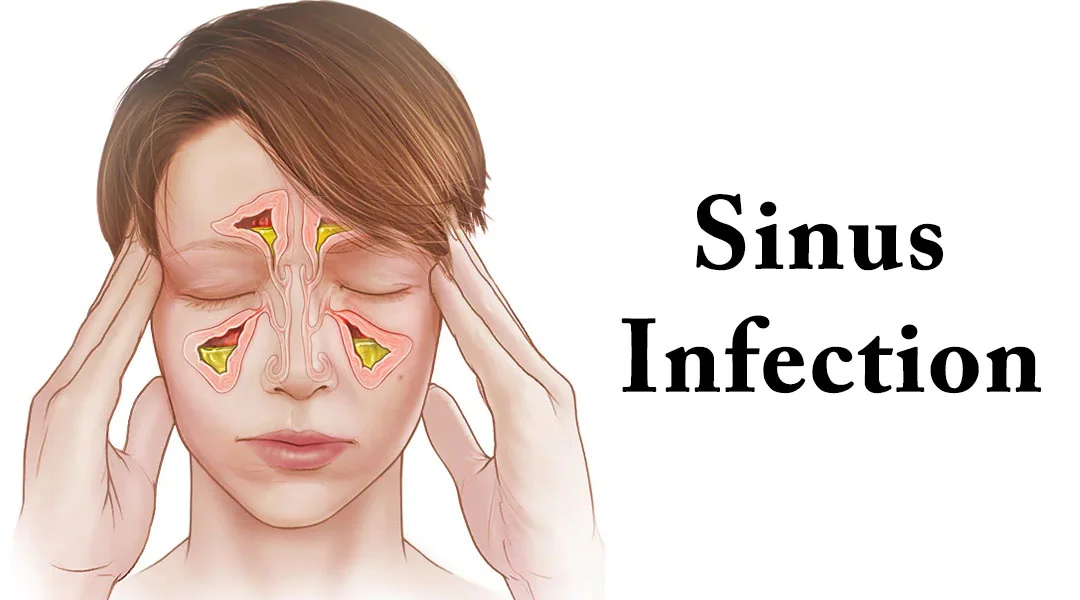Sinus contaminations, also known as sinusitis, affect millions of people worldwide each year. Characterized by symptoms like nasal congestion, facial pain, and pressure, sinus infections can cause significant discomfort. But one question that often arises is: Are sinus infections contagious? While it’s a common concern, the answer isn’t as straightforward as a simple yes or no. Understanding the underlying causes of sinus contamination and distinguishing between myths and facts can help clarify whether or not you need to worry about passing your sinus infection to others.
Understanding Sinus Infections
When the tissue lining your sinuses becomes inflamed, you get sinus contamination. The air-filled cavities behind the cheekbones, nose, and forehead are called sinuses. When healthy, they are lined with a thin layer of mucus that traps dust, germs, and other particles. However, when they become inflamed—usually due to allergies, infections, or environmental irritants—mucus builds up and can lead to an infection.
Sinus infections mostly come in two varieties:
- Acute Sinusitis: This type of infection usually develops suddenly and resolves within a few weeks. It is frequently brought on by a viral illness, such as the common cold.
- Chronic Sinusitis: When a sinus infection lasts longer than 12 weeks or keeps recurring, it is classified as chronic. It may be due to prolonged inflammation from allergies, structural issues, or ongoing infections.
Are Sinus Infections Contagious?
The answer depends on the cause of the sinus contamination. In general, sinus infections themselves are not contagious. However, if the sinus infection is triggered by a viral or bacterial infection, the underlying illness may be transmissible.
Viral Sinus Infections
The majority of sinus contaminations are caused by viruses, such as the common cold or flu. When you contract a viral infection, the virus may irritate your sinus tissues, causing them to swell and block the drainage of mucus. In this scenario, the virus itself is contagious, and you can spread it to others through respiratory droplets, coughing, sneezing, or close contact.
However, it’s important to note that while the virus may be contagious, the resulting sinus infection is not directly passed on. In other words, someone who contracts the virus from you might develop a cold, but they won’t necessarily develop a sinus infection.
Bacterial Sinus Infections
In some cases, sinus contaminations are caused by bacteria. This often happens when a viral sinus infection persists, and bacteria begin to grow in the stagnant mucus. Bacterial sinus infections are less common than viral ones, and while the bacteria can theoretically be contagious, they’re generally not passed from person to person in the same way that viruses are.
If you have a bacterial sinus infection, it’s more likely to be the result of a secondary infection rather than something you’ve caught from another individual.
Allergic And Environmental Sinus Infections
Sinus contaminations caused by allergies or environmental factors are not contagious at all. These types of infections occur when your immune system reacts to allergens like pollen, dust, or mold, causing sinus inflammation. Because no virus or bacteria is involved, these infections cannot be passed to others.
Common Myths About Sinus Infections
There are several myths surrounding sinus infections, particularly when it comes to their contagious nature. Let’s bust some of the most persistent myths:
- Myth: All sinus infections are contagious. Fact: Only viral sinus contaminations are potentially contagious, and even then, it’s the virus, not the sinus infection itself, that spreads.
- Myth: You can catch a sinus infection from someone who has one. Fact: While you may catch the virus that caused someone’s sinus infection, this doesn’t mean you’ll develop a sinus germs yourself. Everyone’s immune response is different, and many factors can influence whether or not a sinus infection develops.
- Myth: Antibiotics are always necessary to treat sinus infection. Fact: Since most sinus infections are viral, antibiotics won’t help in those cases. Antibiotics are only effective for less common bacterial infections.
- Myth: Sinus infection is always caused by an infection. Fact: Many sinus contamination results from allergies, structural issues in the sinuses, or exposure to environmental irritants, none of which are contagious.
How To Stop Sinus Infection From Spreading
If you have a viral sinus infection and want to minimize the risk of spreading the virus to others, consider the following preventative measures:
- Wash your hands frequently: This reduces the chance of transferring the virus through touch.
- Cover your mouth and nose when coughing or sneezing to avoid spreading respiratory droplets.
- Steer clear of close quarters, particularly in busy places.
- Stay home when sick to prevent the spread of the virus to coworkers, friends, or family members.
Treating A Sinus Infection Naturally
For those suffering from sinus germs, particularly recurrent ones, it can be frustrating to deal with the symptoms. While many people turn to over-the-counter or prescription medications, others seek natural remedies to alleviate their discomfort. If you’re also dealing with dental pain, you may be asking: what is the strongest natural antibiotic for tooth infection? Interestingly, some natural treatments can benefit both sinus and tooth infections.
One powerful natural remedy is garlic, known for its antimicrobial properties. Garlic can help fight both bacterial sinus contaminations and tooth infections due to its ability to combat bacteria. Manuka honey is another natural antibiotic that can be used to soothe sore sinuses and as an effective remedy for oral infections.
Echinacea and goldenseal are herbal remedies that have been used for centuries to boost the immune system and fight infections. These herbs can also help clear up a sinus infection and may be beneficial for preventing the spread of germs that cause tooth infections.
Finally, oregano oil is considered one of the strongest natural antibiotics and can be used as a treatment for sinus contamination and oral infections alike. The oil contains compounds like carvacrol and thymol, which have strong antimicrobial properties, making it an effective natural option for fighting both sinus and tooth infections.
